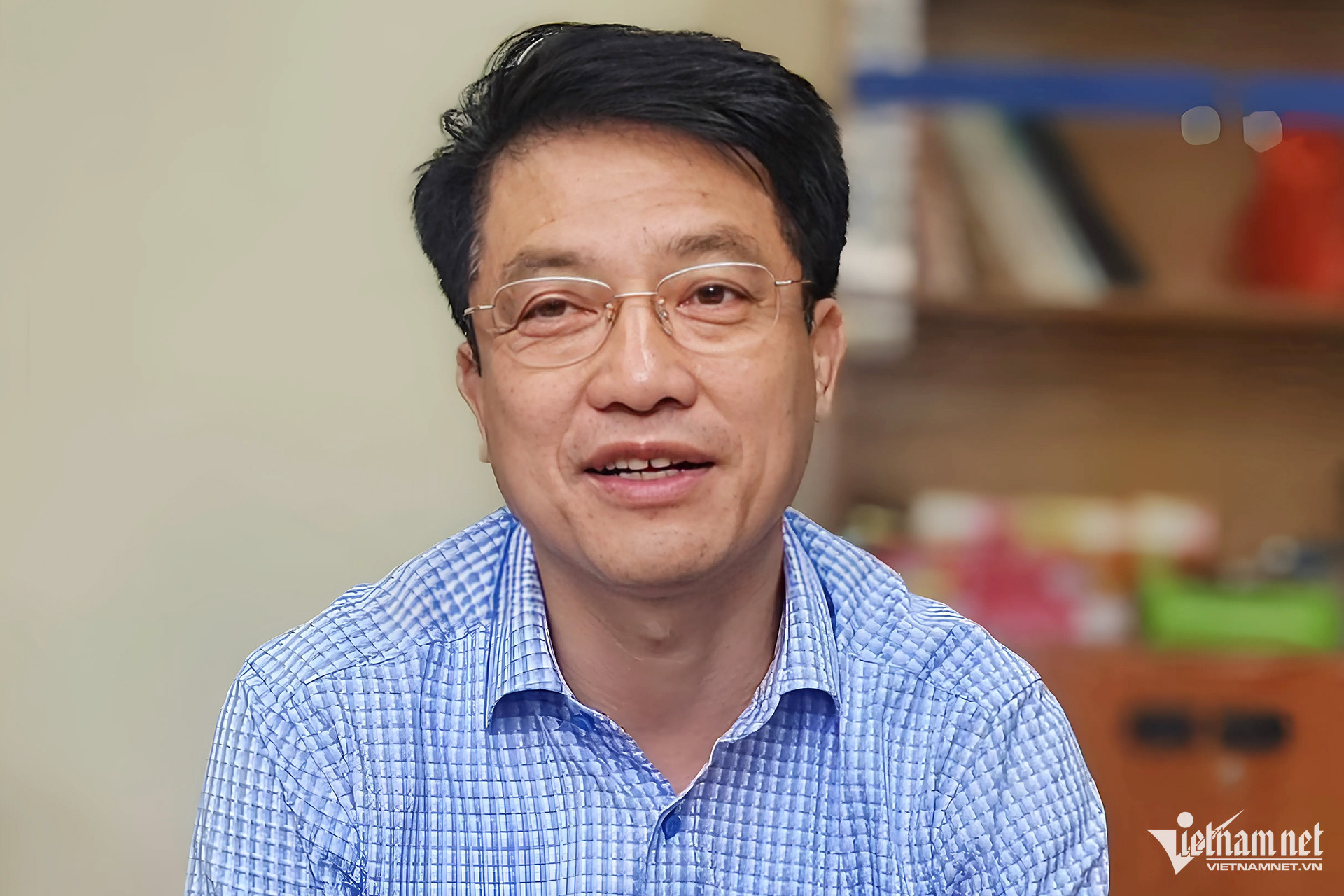Nguyen Quang Dung, Director of the Department of Civil Servants and Public Employees under the Ministry of Home Affairs, argues that the long-standing mindset of a “job for life” in the public sector exists because performance evaluations remain superficial - most employees are rated as meeting expectations annually, making it difficult to remove anyone from the system.

A new draft of the amended Law on Cadres and Civil Servants introduces bold reforms in recruitment and evaluation, aiming to integrate public and private sector resources more effectively.
In an interview with VietNamNet, Dung confirmed that civil servants will soon be assessed using modern tools. If an individual fails to meet job expectations within a year, they may either be dismissed or reassigned to a lower-level position.
Talented individuals can be recruited directly into leadership roles
The revised law contains several significant updates aligned with the government’s directive to restructure local administrations and streamline the state apparatus. Dung outlined the major changes as follows:
First, it introduces a unified civil service regime that links commune-level officials with provincial-level ones. All recruitment, evaluation, and salary decisions will follow the same standardized procedures.
Second, the law proposes a transparent and efficient civil service management system built around job positions. It focuses on three main changes:
The first is a shift to position-based management. Recruitment, evaluation, and deployment will center on specific job roles, and salaries will correspond directly to those roles. The outdated promotion exam system will be phased out.
Second, recruitment will now allow candidates to apply directly for various positions - including specialist, senior specialist, high-level expert, and even leadership roles - if they meet the requirements. Previously, candidates typically entered at the junior specialist level.
This is a major innovation that opens the door for talented individuals from the private sector, as encouraged by Politburo Resolution 66, to be appointed directly into the public sector to fulfill immediate needs.
Third, performance evaluations will be based on job results - measured by progress and output quality - using tools like KPIs, software systems, and scoring indexes. This marks a shift away from subjective assessments toward transparency and objectivity.
Civil servants who underperform will be removed from the system, while those who excel will be rewarded with promotions, salary increases, and leadership opportunities.
These reforms aim to lay the legal foundation for a professional, modern civil service that supports Vietnam’s socio-economic development and better serves citizens and businesses during a transformative era.
Pay aligned with position, not rank
One of the most praised aspects of the draft law is its more flexible, merit-based recruitment model. Dung explained how it differs from the past system:
Previously, civil service followed a seniority-based model. University graduates began as probationary junior specialists earning 85% of a starting salary based on a 2.34 coefficient. Only after nine years could they sit for the senior specialist exam, followed by another six years before qualifying for high-level expert roles.
Under the new model, candidates can apply directly for any position they qualify for - even leadership. Their salary will match the role, not their rank. This change is expected to attract top talent from outside government.
Especially for candidates with specialized skills - such as legal expertise or private-sector leadership - recruitment will be immediate and matched to high-responsibility roles, not just entry-level assignments. This allows critical tasks to be entrusted to the right people from the start.
These are bold, foundational reforms that set this draft law apart from previous versions.
Position-based evaluation: A work in progress

Dung acknowledged that the concept of position-based employment was introduced in 2008 and became law in 2010, but implementation has been challenging. Different countries use different models, and Vietnam has had to adjust along the way.
All ministries and agencies have now submitted and received approval for their job position frameworks. However, integrating those positions with recruitment, evaluation, and salary systems remains inconsistent.
Moving forward, job positions will become the central organizing principle, while ranks will serve a more limited role.
For leadership roles, ranks will only determine salary levels. For other roles, ranks will reflect professional qualifications and expertise. For example, a department director will be paid according to that position, without the need to match a specific rank. Only non-leadership roles will still rely on civil service titles and ranks for salary placement. A gradual transition plan will be required.
Using KPIs to identify performance - and accountability
For decades, the public has associated civil service with the notion of lifetime tenure. This reform aims to end that mindset.
Dung explained that currently, most civil servants are rated as having met expectations at year-end, and only those who fail for two consecutive years are eligible for dismissal. This allows underperformers to game the system by alternating between meeting and failing expectations each year.
The new law proposes that even one year of underperformance could result in dismissal or reassignment to a lower role. This is a significant shift from the current two-year requirement.
Minister of Home Affairs Pham Thi Thanh Tra emphasized in the National Assembly that evaluations will now use KPI-based metrics and digital tools to ensure objective, accurate assessments.
Still, Dung stressed that the ultimate goal isn’t to fire employees but to motivate higher performance. Those who do well will earn faster promotions, higher pay, and bonuses. Those who underperform must improve - or be replaced.
In short, the purpose of evaluations is to inspire accountability and excellence, not merely to eliminate personnel.
Thu Hang - Nguyen Thao